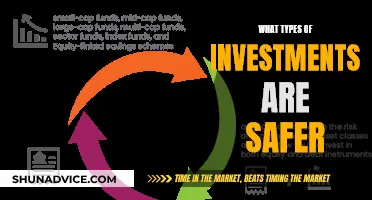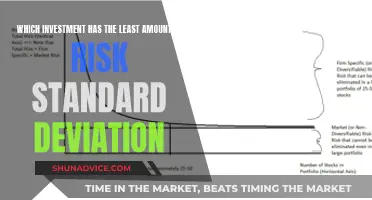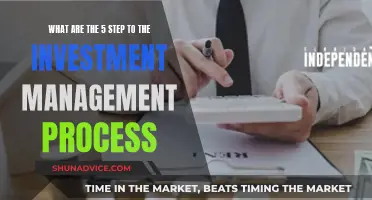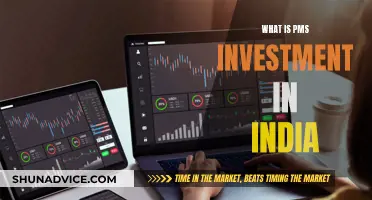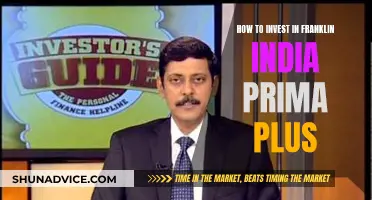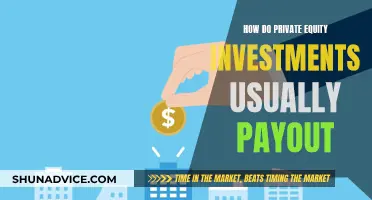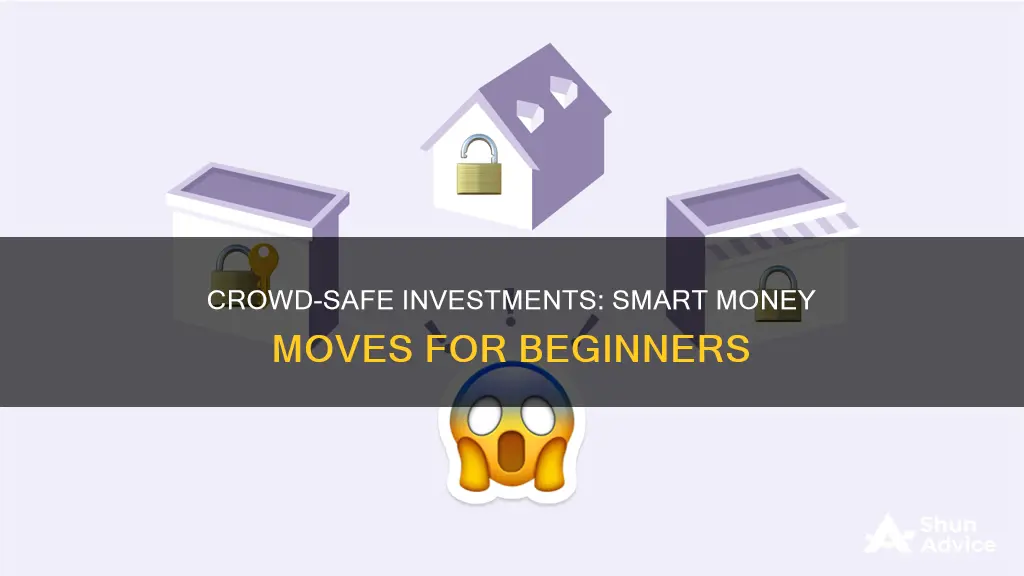
A Crowd SAFE is an investment contract between investors and companies looking to raise capital. It is a type of security, often described as a SAFE (Simple Agreement for Future Equity), that may be offered in crowdfunding. The SAFE is an agreement between the investor and the company, where the company promises to give the investor a future equity stake in the company if certain trigger events occur. These trigger events may include the company's acquisition, IPO, or another round of financing. It's important to note that a SAFE may never be triggered, and there is a risk of losing some or all of the invested money.
| Characteristics | Values |
|---|---|
| Type of security | SAFE (Simple Agreement for Future Equity) |
| Investment contract | Between investors and companies looking to raise capital |
| Investment return | Equity in the company or a cash payout |
| Trigger events | Company's acquisition, IPO, or sale of all assets |
| Customization | Each company can customize its Crowd SAFE |
| Valuation cap | Specifies the maximum valuation for conversion into equity or shadow shares |
| Discount | Investors receive equity shares at a reduced price relative to IPO or acquisition |
| Shadow shares | Shares that mirror the type of security issued in subsequent financing without granting voting or information rights |
| Nominee | Appointed to direct the Nominee on matters like voting, amendments, and conversions |
| Risk | No guarantee of a return on investment |
| Disclosure requirements | Description of the business, financial condition, names and positions of directors and officers, business experience of directors and officers, etc. |
What You'll Learn
- Crowd SAFE notes are a legal way to enable non-accredited investors to invest in crowdfunding opportunities
- A Crowd SAFE is an investment contract between investors and companies looking to raise capital
- A SAFE is an agreement between the investor and the company where the company promises a future equity stake if certain trigger events occur
- A SAFE may not be triggered if the company, for example, makes enough money and doesn't need to raise capital
- SAFEs are not common stock and do not represent a current equity stake in the company

Crowd SAFE notes are a legal way to enable non-accredited investors to invest in crowdfunding opportunities
Crowd SAFE notes were designed specifically for investment campaigns accepting a large number of investors. They can be converted into stock or cash in the future upon the company's acquisition or an initial public offering (IPO). It's important to note that Crowd SAFE notes differ from SAFEs in that they only have two triggers for conversion into equity or stock. They also capture the valuation of the company prior to the crowdfunding raise.
When investing through a Crowd SAFE note, individuals make investments with the chance to earn a return in the form of equity in the company or a cash payout. This return depends on the investment amount, the company's exit valuation, and the terms of the Crowd SAFE. It's worth noting that if a trigger event does not happen, there may never be a return on the investment. Each company customises its Crowd SAFE, and most include a valuation cap and a discount. In the event of future equity financing rounds, the company may choose to "roll-over" Crowd SAFE holders and continue the terms or convert the investment into shadow shares, which mirror the type of security issued in the subsequent financing.
Before investing in a Crowd SAFE note, it is crucial to understand the terms and potential risks involved. SAFEs are not the same, and the conditions governing when an investor may get future equity can vary across different crowdfunding offerings. Additionally, there is a risk that a SAFE may never be triggered and may never convert into equity, resulting in a loss of the original investment. Regulation Crowdfunding requires issuers to make certain information about the offering publicly available, and investors should carefully review this information before making any investment decisions.
Equity Investors: Who and What They Are
You may want to see also

A Crowd SAFE is an investment contract between investors and companies looking to raise capital
The companies that raise capital through Crowd SAFE set the terms for their agreement with investors. The return on investment depends on the amount invested, the company's exit valuation, and the terms of the Crowd SAFE. It is important to understand the terms of any SAFE investment, as there may be scenarios where the triggers for conversion are not activated, and the investment is lost. Additionally, startup investing is inherently risky, and there is no guarantee of a return on the investment.
In the event of future equity financing rounds, the company may choose to "roll-over" Crowd SAFE holders and continue the terms or convert the investment into shadow shares. Shadow shares mirror the type of security issued in the subsequent financing but do not grant investors voting or information rights. Companies may choose to convert Crowd SAFE investments to shadow shares to protect investors' financial interests in the event of an exit.
Crowdfunding, in general, refers to raising capital through small individual investments from a large number of people. It provides individual investors with an opportunity to participate in the capital-raising activities of startups and early-stage companies. Regulation Crowdfunding requires issuers to make certain information about the offering publicly available and provide communication channels for potential investors. It is important for investors to understand the risks involved in crowdfunding, as startups can fail, and investors may lose their entire investment.
Subway's Safety: A Worthy Investment?
You may want to see also

A SAFE is an agreement between the investor and the company where the company promises a future equity stake if certain trigger events occur
A SAFE (Simple Agreement for Future Equity) is a type of security that may be offered in crowdfunding. It is an agreement between the investor and the company where the company promises a future equity stake if certain trigger events occur. It is important to note that SAFEs are not common stock, which represents an ownership stake in a company and entitles the holder to certain rights under state corporate law and federal securities law. SAFEs, on the other hand, do not provide a current equity stake in the company, and investors only receive shares if the terms of the SAFE are met. These terms typically include trigger events such as an additional round of financing or the sale of the company.
The Crowd SAFE is an adapted version of the SAFE, designed to work for investment campaigns with numerous investors. It is an investment contract between investors and companies looking to raise capital. Individuals make investments for the chance to earn a return, which can be in the form of equity in the company or a cash payout, if certain trigger events occur, such as the company's acquisition, IPO, or sale of all its assets. It is important to understand the terms of any SAFE investment, as there is a risk that the trigger events may never occur, resulting in no return on investment.
One key difference between SAFEs and common stock is that SAFEs lack interest accrual and a maturity date for conversion to equity. This means that there is no guarantee that a SAFE will be triggered and converted into equity, even if the company raises more capital. For example, if a company becomes financially stable and does not need to raise capital again, the SAFE may never be triggered. Additionally, SAFEs can create confusion during conversion to equity if they are issued at different values, and they may not provide clear legal definitions of investor rights, particularly regarding additional investments in the future.
When investing in a SAFE, it is crucial to understand the specific conversion terms, such as whether only the original investment amount will be converted into equity. Other important considerations include repurchase rights, dissolution, and voting terms. While SAFEs offer a quick way for venture capitalists to invest in startups, they come with risks, and investors should be cautious and understand the terms and potential outcomes before signing any agreements. Additionally, investors should be aware of disclosure requirements and confirm their understanding of the risks involved.
Diversifying Your Investment Portfolio: Strategies for Success
You may want to see also

A SAFE may not be triggered if the company, for example, makes enough money and doesn't need to raise capital
A Crowd SAFE is an investment contract between investors and companies looking to raise capital. Individuals make investments for the chance to earn a return in the form of equity in the company or a cash payout if the company is acquired, goes public, or sells all of its assets. The Crowd SAFE was created by Republic and is an adapted version of the SAFE (Simple Agreement for Future Equity), a financial instrument created by Y Combinator.
A SAFE is an agreement between an investor and a company in which the company promises to give the investor a future equity stake if certain trigger events occur. These trigger events could include the company's acquisition or IPO. It is important to note that a SAFE may never be triggered, and there is a risk of losing some or all of the money invested.
One scenario in which a SAFE may not be triggered is if the company makes enough money and does not need to raise capital. In this case, if the company is also not acquired by another entity, the SAFE may never convert into equity, and investors may not receive a return on their investment.
For example, let's consider a company, Company X, that has received investments through a SAFE agreement. Company X experiences significant success and profitability, generating enough revenue to sustain its operations and future plans. As a result, Company X does not need to raise additional capital through equity financing or debt offerings. In this case, the SAFE agreement may not be triggered, and the investors may not receive their anticipated future equity stake in the company.
It is crucial for investors to understand the terms and potential risks associated with SAFE agreements before investing. While SAFE agreements offer an opportunity to invest in startups and early-stage companies, they also carry the risk of losing the entire investment if trigger events do not occur. Due diligence and a thorough understanding of the company's financials and business plans are essential before entering into a SAFE agreement.
S-Corp Savings: Investing for Growth and Security
You may want to see also

SAFEs are not common stock and do not represent a current equity stake in the company
A Crowd SAFE is an investment contract between investors and companies looking to raise capital. It is an adapted version of the SAFE (Simple Agreement for Future Equity), a financial instrument created by Y Combinator. The Crowd SAFE was designed to work for investment campaigns with hundreds or even thousands of investors.
SAFE stands for a Simple Agreement for Future Equity. It is an agreement between an investor and a company where the company promises to give the investor a future equity stake if certain trigger events occur. These trigger events could include the company's acquisition, IPO, or another round of financing. It is important to note that a SAFE may never be triggered, and there is no guarantee of a return on the investment.
The key difference between SAFEs and common stock is that SAFEs do not provide immediate equity or ownership in the company. Instead, investors are promised a future equity stake, which is dependent on certain conditions being met. This means that there is a risk of losing some or all of the invested money if the trigger events do not occur. It is crucial for investors to understand the terms and potential risks associated with SAFEs before making any investment decisions.
Investment Services: High Risk, Why?
You may want to see also
Frequently asked questions
A Crowd SAFE is an investment contract between investors and companies looking to raise capital. It is an adapted version of the SAFE (Simple Agreement for Future Equity) investment instrument, designed to work for investment campaigns with hundreds or thousands of investors.
A SAFE is an agreement between an investor and a company, where the company promises to give the investor a future equity stake if certain trigger events occur. These trigger events could include the company's acquisition or an additional round of financing.
SAFE investments are not guaranteed to be triggered, meaning there is a chance that investors will not receive a return on their investment. SAFE investments are also not common stock, so they do not represent a current equity stake in the company.
To make a SAFE investment, you must do so through an online platform of a broker-dealer or a funding portal, which is a type of intermediary created by the JOBS Act. These platforms are required to make certain information about the offering publicly available and provide communication channels for individuals to communicate with representatives of the issuer.


